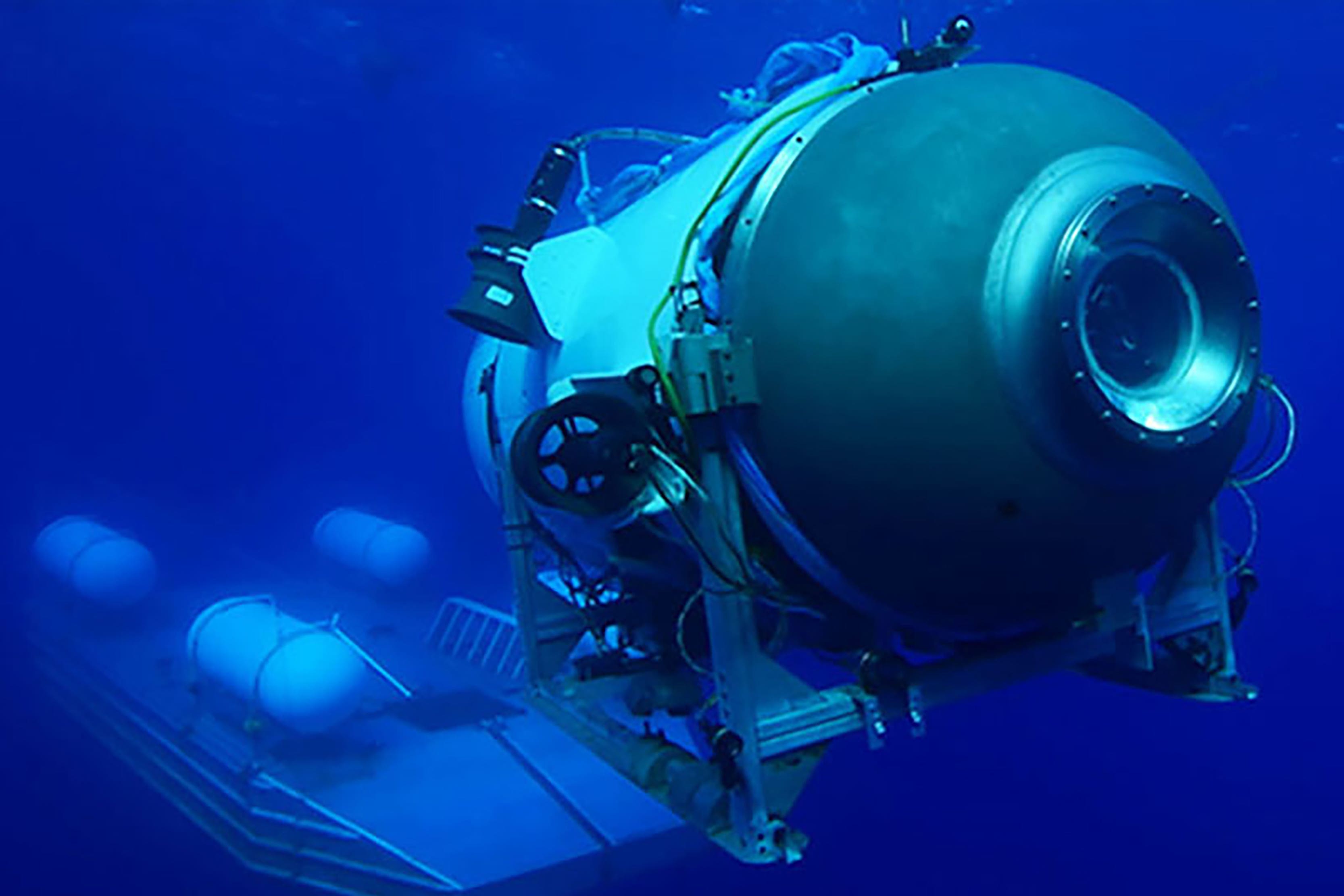
The first image of the Titanic submarine search site 900 miles off the coast of Cape Cod have emerged showing the rescue ship Deep Energy arriving on Wednesday morning.
Deep Energy is one of four vessels to reach the site in the middle of the North Atlantic Ocean, as survivors on the missing submersible Titan have less than 20 hours of oxygen remaining.
Banging sounds detected by Canadian military sonar buoys early on Wednesday breathed fresh hope into the fading prospects of finding the five crew members aboard the deep sea submersible alive.
Follow live coverage of the missing Titanic sub in our live blog here
However, the French ship Atalante carrying the Victor 6,000 underwater remote operated vehicle (ROV) and winch — the only one capable of reaching the Titanic wreck 4,000m under the ocean surface — will only reach the search site at around 8pm EST on Wednesday night.
The Bahamian-flagged research vessel Deep Energy carries two ROVs capable of operating to a depth of 3,000m and specialises in laying underwater flexible pipes and “umbilical cords”, according to its owners TechnipFMC.
The John Cabot, which has “side scanning sonar capabilities”, the Skandi Vinland and the Atlantic Merlin have also arrived at the search site, the US Coast Guard said in a Twitter post.

According to the the National Oceanic and Atmospheric Administration (NOAA), side scan sonar is used to detect and image objects on the seafloor.
Side scan sonar cannot measure depth, however, and is used in with other measuring tools such as single-beam and multibeam sonar to create a map of the seafloor, NOAA states.
The OceanGates Expeditions-owned Titan lost contact with its support ship about an hour and 45 minutes after departing on a tour of the Titanic shipwreck on Sunday morning.
OceanGate CEO and founder Stockton Rush, British billionaire explorer Hamish Harding, renowned French diver Paul-Henri Nargeolet and Pakistani businessman Shahzada Dawood and his 19-year-old son Suleman Dawood were onboard the submersible vessel.
The search operation is being led by the US and Canadian CoastGuards, who have been flying reconnaissance flights and deployed sonar buoys to search for signs of life.

Around 3am on Wednesday, sonar picked up faint banging sounds under the water, indicating “continued hope of survivors”, according to an internal government memo obtained by CNN.
US Coast Guard captain Jamie Frederick, who is coordinating the search effort, emphasised in a press briefing on Tuesday that specialist equipment was needed to handle a deep sea rescue at such extreme depths.
“This is a complex search effort which requires multiple agencies with subject matter expertise and specialised equipment which we have gained through the unified command,” said Capt Frederick, said.
Surface searches of a roughly 10,000sqm area are continuing.



!["[T]he First and Fifth Amendments Require ICE to Provide Information About the Whereabouts of a Detained Person"](https://images.inkl.com/s3/publisher/cover/212/reason-cover.png?w=600)



